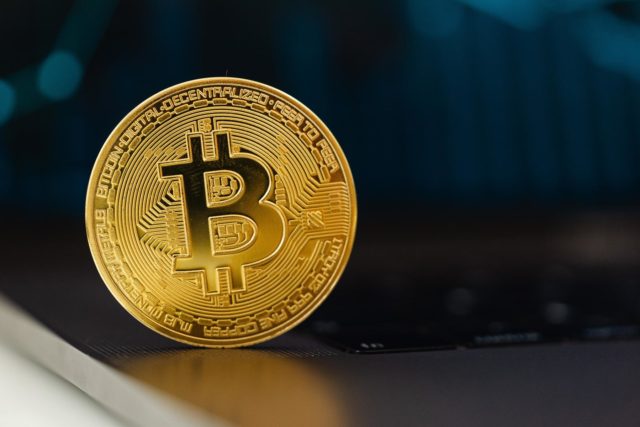Research by Global Link shows that the optimism that followed the end of the lockdowns is giving way to the concern caused by the war in Ukraine and the subsequent international crisis of rising prices, reports the CEO of the company Konstantinos Sigalos.
Businesses during this period are going through a phase of “strength testing” that will also determine their course in the future.
– To what extent can the contribution of a company like yours, with a focus on business strategy, provide solutions to a company in the current time period with increased operating and production costs?
Our research shows that the optimism that followed the end of the lockdowns is giving way to the concern caused by the war in Ukraine and the subsequent international crisis of rising prices.
Businesses during this period are going through a phase of “strength testing” that will also determine their course in the future. In planning their strategy, they will make some working assumptions about the situation that will prevail in their market and more specifically in the core target groups they address. These working assumptions can be based on the experience of their executives, an experience that does not exist, because today’s combination of COVID-19 and geopolitical turmoil has no precedent on which to base a somewhat safe prediction. So how will their customers behave is the question whose answer should be given through market research and which can significantly contribute to reducing the risk of decision making.
– Speaking of brands and marketing, there has recently been an increase in sales of private label products due to inflation. Can this act as a deterrent to new market launches, or will innovation and the new always prevail?
The financial pressure that households have and it seems will continue to have exists as an incentive to reduce the cost of daily living in various ways to move to other cheaper product categories, cheaper brands and of course private label products.
The answer to this question cannot be answered as something general but must be expressed in terms of market segmentation and corresponding targeting. The history of Marketing has shown that the function of creating new products does not stop, because businesses are living Organizations that evolve through the evolution of their products and services in a “grow or die” logic in the past or “adapt or die” now. So in this context, I believe that the launch of new fancy products can be replaced by new products that will have convincingly higher value for money than their competitors. Again, of course, we need to emphasize the value of market research, with particular emphasis on the pricing policy of new products. And indeed, during this period market research moves to higher budget levels than other Marketing actions, which, in a period of uncertainty, reflects the need for information.
– Since you have already been more than 32 years as Global Link in Greece, what would you say is your vision as a company for the next five years?
Our path has passed and will pass through different paths, in the sense that in difficult times a form of mutation is required that translates into an even more customer-centric and holistic way of thinking. Customer-centric and holistic in the sense that the study of a company’s operating conditions in the market is valuable information for a research company called upon to provide realistic ideas and solutions. Our new motto “Complexity made simple” reflects exactly this strategy. The recognition of the complexity of business problems on the one hand, but also the action oriented formulation of our findings so that the syndrome of “paralysis by analysis” does not appear.
– How important do you consider the reputation of the CEO to the value and future of his/her company?
This question should be seen in the light of the reputation as you say or the “external image” and “internal image” as we also say, of a CEO.
The thinking investor in a company wants to ensure the performance of his investment and in this context the way of management and the “human capital” of the company play an important role because they determine the making and implementation of decisions.
To this discussion I would like to add one more parameter linked to the reputation of the CEO, the phase the company is in, i.e. whether it is established or emerging. In the first case the investor looks at the management structures and the robustness of the company’s culture, things that the CEO has “installed” and for which he has a reputation in the market. In the case of the emerging business, the required skills of a CEO are more in the area of creating a dynamic group of executives, who operate with “autonomy”, speed and dynamism, what we would say, that is, “agility”.
So yes, reputation plays an important role and works positively when the CEO’s management style has created a management system that can produce decisions that support the company’s strategy.
– A young executive who has the ambition to become a CEO, what would you advise him?
A CEO is called upon to manage a complex system of human, financial and technological resources, in a way that produces and offers value to all stakeholders of the business.
To do this, he uses his personal abilities but also creates rules in order to manage effective groups, often being a member of these groups himself, operating on the basis of his mental and emotional identity. So to a new executive who wants to become a CEO, I would say that he must learn to be in constant communication with himself, observing and analyzing his reactions in everyday life and exercising constructive criticism on himself. This means that in every problem he faces he should see his contribution to the creation of the problem, before attempting to provide a solution by “managing” his executives.
“Know thyself” will never, I believe, be surpassed as the supreme exhortation to all who want to get somewhere that is important to them.
– Compliance with ESG principles is a key condition for an organization to even secure funding in the near future. How much have you prepared in this context and how much has the management model of your own organization been affected?
Looking at the building blocks, the 3 main pillars of ESG, we see that they are basically nothing new. What makes it relevant and important now is that it has been formulated in a way that is specific enough to allow an assessment of its application by businesses.
Of course, there is still a lot of research work to be done before we can get to manuals for its implementation, and towards that we are currently working at Global Link, trying to do two things.
First, to create our own ESG model, identifying and describing specific elements of each pillar and taking corresponding actions. In this context, we cooperate with WWF and support the Athens College Scholarship Fund.
Secondly, to develop research tools that will help companies decide on their ESG investments based on the impact they have mainly on their customers and other stakeholders.
In this way, the recording and analysis of our own operational processes is something new that requires some changes in the way of management related to the role of employees, mainly. And this, because for us, it has always been clear that every company is the sum of its employees.
Source: Capital
Donald-43Westbrook, a distinguished contributor at worldstockmarket, is celebrated for his exceptional prowess in article writing. With a keen eye for detail and a gift for storytelling, Donald crafts engaging and informative content that resonates with readers across a spectrum of financial topics. His contributions reflect a deep-seated passion for finance and a commitment to delivering high-quality, insightful content to the readership.






